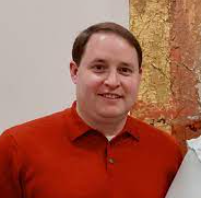Dear WesleyNexus Colleagues,
Easter was celebrated this year on April 4th. It was a bit chilly here in the DC area with more than a little wind. Nonetheless, many churches worshiped outside, coming together as a congregation for the first time in many months. To the proclamation, “He is Risen”, the gathered souls responded, “He is Risen Indeed!”, sharing the historical proclamation of hope shared throughout the centuries. But it does seem that this time is different, a time when the world seems to be shifting. Some have called this time the Anthropocene due to the ubiquitous impact that humans are having on the earth and its weather, material compositions and ecosystems. So when we raise our voice, “He is Risen Indeed”, it is a world drastically different from the one where the gospel message was first heard. It is in this context that Deborah Dean Murphy, professor of religion at West Virginia Wesleyan and frequent contributor to the Christian Century, shared a poem used in her God and Globalism class and on Facebook. Written by Catherine Pierce, read the Anthropocene Pastoral below:
The science of the anthropocene does not offer many comforting words. The challenges are great and, perhaps all we can say is “I’m sorry”. But we are hopeful creatures and though the challenges we face seem daunting, we can still say He is Risen Indeed and, from there, cling together in the epochal twilight, sustaining with the whole planet the coming promise.
Thanks go out to our generous contributors. We encourage you to share comments, articles and insights that will help us all weather these difficult times.
Rick, Jennifer, Maynard, and the rest of the WesleyNexus team
******************************************************************
CATHERINE PIERCE
ANTHROPOCENE PASTORAL

In the beginning, the ending was beautiful.
Early spring everywhere, the trees furred
pink and white, lawns the sharp green
that meant new. The sky so blue it looked
manufactured. Robins. We’d heard
the cherry blossoms wouldn’t blossom
this year, but what was one epic blooming
when even the desert was an explosion
of verbena? When bobcats slinked through
primroses. When coyotes slept deep in orange
poppies. One New Year’s Day we woke
to daffodils, wisteria, onion grass wafting
through the open windows. Near the end,
we were eyeletted. We were cottoned.
We were sundressed and barefoot. At least
it’s starting gentle, we said. An absurd comfort,
we knew, a placebo. But we were built like that.
Built to say at least. Built to reach for the heat
of skin on skin even when we were already hot,
built to love the purpling desert in the twilight,
built to marvel over the pink bursting dogwoods,
to hold tight to every pleasure even as we
rocked together toward the graying, even as
we held each other, warmth to warmth,
and said sorry, I’m sorry, I’m so sorry while petals
sifted softly to the ground all around us.
******************************************************************
IRAS Star Island Conference
Sunday, June 27-Saturday, July 3, 2021

IRAS will go ahead with our conference, Naturalism — as Religion, within Religions, without Religions.
It will be another great conference, in a special year. We expect that the joy of an ‘in person’ conference, after a year full of online meetings, will be well worth it. And that in years to come, when we look back, this will shine in our memories as a special year, with a remarkable conference.
Registration, at starisland.org, has opened on March 10, but due to “social distancing” requirements, registration slots have been cut in half this year. If you are interested in registering, don’t delay. For more information on the conference, see IRAS Conference 2021 on the website www.iras.org.
******************************************************************
IRAS Monthly Webinar Series
April 14, 2021 @ 5:00 EDT (and on demand shortly after) available on the IRAS website: www.iras.org.

The Hype and Realities of Aquaculture in your Community with Barry Antonio Costa-Pierce
Presentation Overview: Almost every month the press announces a new, usually large-scale, aquaculture development planned for a community near you, especially if you live on the world’s marine coasts or freshwater great lake. Stories usually lead with the background to the local development that: (a) because of the huge demand for food for a growing world population to 2050 and beyond, we need aquaculture here in your place; and ever more so as the world’s fisheries (and those here locally) have collapsed; and (b) aquaculture has been growing so fast, the world (meaning, you) now get half of its (and your) fish/seafood from aquaculture. Maps are often attached to these press reports that show dots scattered across a coastal area, proving aquaculture’s massive proliferation and implications that it is urgent/vital for you to vote to give its proliferation more space. That’s the hype. What’s the reality? This talk will explore some inconvenient truths and discuss the realities of ocean aquatic food production in 2021 and realistic scenarios for our future.
The May IRAS webinar will feature Dr. Ron Cole-Turner, who holds the H. Parker Sharp Chair in Theology and Ethics at Pittsburgh Theological Seminary. The topic is The Human Mystery: Unraveling the Past, Exploring the Future, and here is the Summary for the May 19 presentation:
New discoveries in human origins research complicate the scientific interpretation of our past. Until recently, it was widely believed that our species, Homo sapiens, appeared in a unique form in East Africa around 150,000 years ago. Spreading throughout the world, this new “species” simply replaced all other human variants that they encountered. It was also generally believed that human culture appeared almost in a flash, a kind of “cultural big bang,” centered in Europe. Counter-evidence, whether newly discovered or reassessed through powerful new techniques, supports a major reinterpretation of the once-accepted “recent out of Africa” perspective and the accompanying “cultural big bang.” The new interpretation, however, is not without its problems. The new view undermines a Eurocentric view of culture, but it prompts puzzling questions about why cave art should appear at almost the same time in widely separated locations. The evidence for the Paleolithic interbreeding of various forms of humanity (Neandertals, Denisovans, and probably many others) presents a fundamentally new view of the hybrid nature of our species. At the same time, it reawakens old anxieties about our diversity and unity as a global species. Perhaps not as a coincidence, the new view of our past comes just as we acquire the technology to influence the future of human evolution by using advances in fields like genetics (gene editing). What do new interpretations of our origins mean for human beings living today at this pivotal moment in evolutionary history? What do they suggest about human unity in light of human variation? Can religious perspectives offer affirmations of human unity and inspire a hopeful human future?
The IRAS webinar is FREE but registration is required
https://us02web.zoom.us/webinar/register/WN_Zf76EqQiSA2Ha6lcAvjFBQ
******************************************************************
Free CASIRAS webinar on the Anthropocene Age
Dr. David Grinspoon of the Planetary Science Institute
June 3 @ 5 PM CDT

Details still TBD.
Founded in 1972, CASIRAS is an independent society of scholars and scientists from various fields who pursue critical, interdisciplinary studies of possibilities for constructively relating religion and science.
About CASIRAS here: https://www.casiras.org/
******************************************************************
Scientists Are Reporting Hostility From Their Own Churches. Why?
By Drew Rick Miller (Christianity Today, April 6, 2021)

“How was I treated in the church as a scientist? Man, that’s a trigger question for me. The simple answer is, not very well. Sadly, our long history of often experiencing rejection or simply being ignored is disillusioning for me.”
“I have encountered more hostility as a scientist in a world of Christians, than I have as a Christian in a world of scientists.”
Two scientists, two replies to how they are received in our churches, and neither reflects well on the Body of Christ. It is no wonder that many scientists keep their heads down and don’t draw attention to their day jobs. But that does not mean they are absent in our churches.
******************************************************************
U.S. Church Membership Falls Below Majority for First Time
BY JEFFREY M. JONES

STORY HIGHLIGHTS
In 2020, 47% of U.S. adults belonged to a church, synagogue or mosque
Down more than 20 points from turn of the century
Change primarily due to rise in Americans with no religious preference
******************************************************************
Slashing emissions by 2050 isn’t enough. We can bring down temperatures now. by Paul Bledsoe (Washington Post, April 16, 2021)
******************************************************************
Aerosol formation in clouds, Paul Scherrer Institute

Summary:
Researchers have explored how chemical reactions in clouds can influence the global climate. They found that isoprene, the dominant non-methane organic compound emitted into the atmosphere, can strongly contribute to the formation of organic aerosols in clouds.
******************************************************************
Becoming Like Trees by Amy Julia Becker

Tree roots are intended to grow both deep and wide. When a storm comes, those roots hold the tree in place so that it does not topple over. Similarly, in our spiritual lives, the love of God anchors us even in the midst of a storm.
To read Amy Julia Beckers reflection on trees, click here: https://scienceforthechurch.org/2021/04/13/becoming-like-trees/
